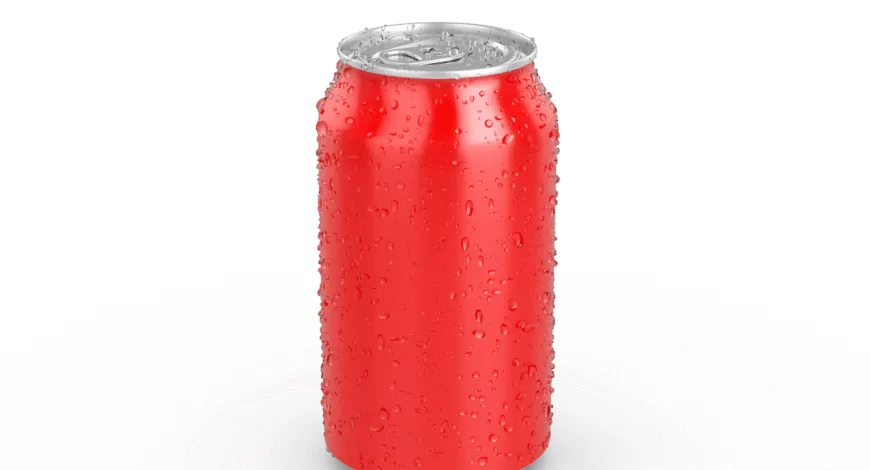I. Introduction: A Common Question on the Road to Recovery
You’ve successfully navigated the dental implant procedure, a significant investment in your long-term oral health and confidence. As you settle into the recovery phase, a common question often arises: “When can I have a celebratory drink?” Whether it’s a glass of wine with dinner or a beer with friends, understanding the rules around alcohol consumption is not just a matter of preference—it’s a critical component of a successful healing process.
The short answer is that you must wait. The long answer is more complex, involving a deep dive into the biological processes that make dental implants work and the multiple ways alcohol can disrupt them. Consuming alcohol too soon after surgery isn’t just a minor misstep; it can actively sabotage the healing of your gums and jawbone, interfere with essential medications, and, in the worst-case scenario, lead to the complete failure of your new implant.
This comprehensive guide will walk you through everything you need to know about alcohol and dental implants. We will explore the science behind why abstinence is crucial in the immediate aftermath of your surgery, detail the specific risks alcohol poses to the critical osseointegration phase, provide a clear timeline for when it might be safe to reintroduce alcohol, and discuss the long-term implications of drinking for the health of your implant. Protecting your investment means giving your body the best possible environment to heal, and that starts with understanding what to avoid.
II. The Science of Healing: Why Alcohol is a Threat to Your Implant
To appreciate the risks, it’s essential to understand what your body is trying to achieve after surgery. The success of a dental implant hinges on a remarkable biological process called osseointegration, where the titanium or zirconia implant post fuses directly with your jawbone, creating a stable, artificial tooth root. This process, along with the healing of the surrounding gum tissue, is a delicate and resource-intensive task. Alcohol consumption introduces a host of disruptive factors that can compromise every stage of this recovery.
The Immediate Danger: Blood Clot Disruption and Delayed Healing
In the first 24 to 72 hours after your surgery, your body’s primary goal is to form a stable blood clot over the surgical site. This clot is a natural bandage that protects the underlying bone and nerves, prevents excessive bleeding, and provides the foundation for new tissue to grow.
Alcohol is a known anticoagulant, meaning it thins the blood and impairs the body’s ability to form clots. Introducing alcohol during this critical window can:
- Increase Bleeding: By preventing a stable clot from forming, alcohol can lead to persistent bleeding at the implant site.
- Cause Dry Socket: If the blood clot is dislodged or dissolves prematurely, it can result in a “dry socket,” a notoriously painful condition where the underlying bone and nerves are exposed. This not only causes significant discomfort but also severely delays healing and increases the risk of infection.
- Dehydrate Oral Tissues: Alcohol is a diuretic, meaning it causes your body to lose fluids and leads to dehydration. A dry mouth and dehydrated tissues at the surgical site can be extremely painful and impede the healing of the gums.
The Core Threat: Sabotaging Osseointegration
Beyond the initial 72 hours, the most crucial phase of implant recovery begins: osseointegration. This is the multi-month process where your jawbone grows onto and fuses with the implant surface, locking it permanently in place. The success of this fusion is the very definition of a successful implant.
Chronic and even moderate alcohol consumption can have a devastating effect on bone metabolism and directly interfere with osseointegration in several ways:
- Reduces Blood Flow: Alcohol can cause blood vessels to constrict, reducing the flow of oxygen and essential nutrients to the healing jawbone. This can effectively “starve” the new bone cells, preventing them from growing and fusing with the implant.
- Inhibits Bone Cell Formation: Studies have shown that excessive alcohol consumption suppresses the function of osteoblasts—the cells responsible for forming new bone. This directly slows down and weakens the bone regeneration required for a strong implant foundation.
- Decreases Protein Production: Healing requires the synthesis of proteins like collagen to rebuild tissues. Alcohol consumption has been shown to decrease the body’s ability to produce these vital building blocks, further slowing down both soft tissue and bone repair.
- Increases Risk of Avascular Necrosis (AVN): In severe cases, excessive drinking following surgery can lead to AVN, a condition where the bone tissue dies due to a lack of blood supply. This can cause the jawbone to become brittle and frail, resulting in irreversible damage and almost certain implant failure.
Research has consistently shown that chronic and excessive alcohol consumption impairs osseointegration, reduces bone density, and compromises the overall success of implant therapy. Patients with a history of alcohol abuse experience implant failure rates up to three times higher than non-drinkers.
III. A Dangerous Cocktail: Alcohol’s Interaction with Post-Surgical Medications
Another critical reason to avoid alcohol is its potential for dangerous interactions with medications prescribed after your surgery. To manage pain and prevent infection, your surgeon will likely provide you with prescriptions for painkillers and antibiotics.
- Pain Medications: Whether you are taking prescription narcotics or over-the-counter pain relievers like ibuprofen, mixing them with alcohol is unsafe. Alcohol can dangerously enhance the sedative effects of these drugs, leading to impaired motor function, extreme dizziness, and in severe cases, liver damage or overdose.
- Antibiotics: Alcohol can reduce the effectiveness of antibiotics, leaving your vulnerable surgical site with a weakened defense against bacterial infection. It can also increase the risk of side effects from the medication.
To ensure your medications work as intended and to avoid hazardous side effects, you must abstain from alcohol until you have completed the full course of any prescribed drugs.
IV. The Official Timeline: How Long to Wait Before Drinking
While every patient’s healing journey is unique, dental professionals have established clear guidelines for alcohol consumption after implant surgery. This timeline is based on the biological healing stages and is designed to minimize complications.
| Healing Phase | Recommended Abstinence Period | Reasoning |
| Immediate Post-Op | Minimum 72 Hours | This is the most vulnerable period. Abstinence is mandatory to allow for stable blood clot formation and to prevent bleeding, dry socket, and initial healing disruption. |
| Initial Healing | 1 to 2 Weeks | This is the widely recommended minimum waiting period. It gives the gum tissues time to close and the initial stages of bone healing to begin without interference.
|
| Complex Procedures | 3 to 6 Months | If your implant surgery involved additional procedures like a bone graft or a sinus lift, the healing process is far more delicate and prolonged. Alcohol can severely damage the graft material and prevent new bone from forming. In these cases, surgeons strongly advise abstaining from alcohol for several months to ensure the foundation for your implant is successfully established.
|
The Golden Rule: The most important advice comes directly from your oral surgeon. They will provide post-operative instructions tailored to your specific case, taking into account the complexity of the surgery, your overall health, and any medications you are taking. Always follow their professional guidance above all else.
V. Long-Term Health: The Impact of Chronic Alcohol Use on Your Implants
Even after your implant has fully healed and integrated, the story doesn’t end. The long-term success of your implant depends on maintaining the health of the surrounding bone and gum tissue. Chronic or excessive alcohol consumption can continue to pose a threat for years to come.
Heavy drinking is linked to a range of oral health problems that can jeopardize your implant:
- Bone Loss: As discussed, alcohol can negatively affect bone metabolism, leading to decreased bone density over time. This can weaken the jawbone supporting the implant, potentially causing it to loosen.
- Gum Disease and Peri-Implantitis: Alcohol can cause dry mouth and irritate gum tissues, creating an environment where harmful bacteria can thrive. This increases the risk of developing peri-implantitis, an inflammatory condition similar to gum disease that affects the tissues around an implant. If left untreated, peri-implantitis can lead to bone loss and the failure of the implant.
- Weakened Immune System: Long-term alcohol use can suppress your immune system, making it harder for your body to fight off infections in the gums and bone around the implant.
VI. Conclusion: Prioritizing Healing for a Lifetime of Smiles
Undergoing dental implant surgery is a proactive step towards restoring your smile and improving your quality of life. Protecting that investment during the healing phase is paramount. While the desire for a celebratory or relaxing drink is understandable, the scientific evidence is clear: alcohol and a healing dental implant do not mix.
From interfering with critical blood clot formation in the first few days to disrupting the fundamental process of osseointegration over the following months, alcohol poses a significant threat to the success of your procedure. It can delay healing, increase pain, cause dangerous medication interactions, and ultimately lead to implant failure.
The safest course of action is patience. Adhere strictly to the waiting period recommended by your oral surgeon—typically a minimum of one to two weeks for a standard procedure and potentially several months for more complex cases involving bone grafting. Once you are fully healed and cleared by your dental professional, you can resume drinking in moderation. By prioritizing your body’s need to heal, you are ensuring that your new dental implant will have the strong, stable foundation it needs to serve you for a lifetime.

